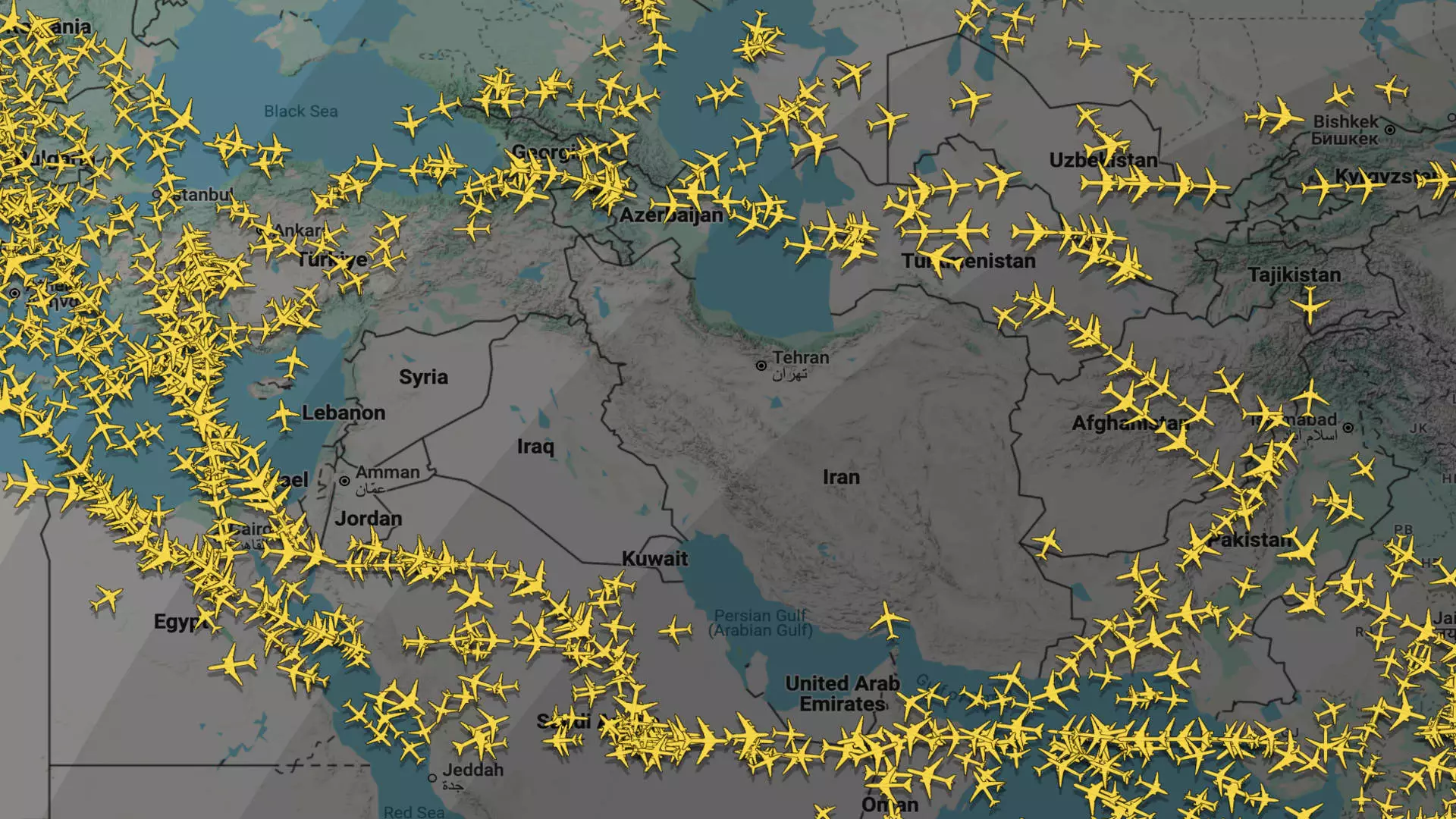The recent missile strike by Iran on a U.S. military base in Qatar has sent shockwaves throughout the aviation industry, sparking a wave of diversions and cancellations. For airlines, this geopolitical unrest isn’t just a minor inconvenience; it’s a harbinger of chaos. More than 20 commercial flights bound for Doha were forced to divert, and the ramifications extended to other routes, with notable cancellations from major airlines. The airspace over the United Arab Emirates was temporarily closed, a decision that resonates with traveler’s anxiousness every time they check their flight status. These disruptions underscore how profoundly external conflicts can interrupt the lives of everyday people simply trying to travel for business or leisure.
The Inescapable Ripple Effect
The ripple effect from military conflicts in the Middle East is becoming increasingly difficult to ignore. Air India made headlines by announcing an indefinite halt to all flights in this volatile region, adding to the frustration of travelers. The phrasing of their communication, “beyond an airline’s control,” reflects an uncomfortable reality: people are not only grappling with personal schedules being upended but are also confronted with the unsettling notion that the world political scene dictates their ability to move freely. Airlines are now at a crossroads, trying to balance safety with profitability while navigating a turbulent geopolitical landscape. It raises the question of how many more suspensions and cancellations will it take for governments to realize the direct impact of their foreign policies on ordinary lives?
Safety First: A Relentless Commitment?
Emirates Airline’s approach to maintaining schedules while avoiding conflict zones highlights the precarious balancing act airlines must perform. “Flight paths well distanced from conflict areas” is a commendable mantra, but how sustainable is it in practice? With the added burden of disrupted routes due to wars, airlines now face longer flight plans that add costs, both in terms of fuel and time. While airlines claim safety as their highest priority, the reality is that these disruptions are a mere façade designed to mask an underlying economic struggle. Will customers trust the safety messages when the very infrastructure of travel becomes deeply intertwined with military conflicts?
The Economic Toll on Travelers and Airlines
Economic ramifications are hard to ignore. The ongoing military tensions not only degrade service quality but also inflate operational costs significantly. Longer flight routes mean more fuel consumption, leading to higher ticket prices and fewer choices for travelers. The notion that escalating conflicts could price average citizens out of the joy of travel is nothing short of tragic. It speaks volumes about how the ripple effects of war extend far beyond the battlefield, touching the pockets of families looking to visit loved ones or conduct business abroad. Agency within the realm of travel becomes an illusion, commodified by the political machinations happening miles away.
The Broader Implications for International Relations
The aviation industry serves as a microcosm of larger geopolitical issues, illustrating how international relations can filter down into personal lives. As countries maneuver for political supremacy, the repercussions will continue to resonate through commercial air travel. The past few months showcase a concerning trend; even as airlines strive to provide safe travel options, they find themselves ensnared in a complex web of international relations. Cancelations and disruptions aren’t merely incidental; they are reflective of a world increasingly divided by tensions and mistrust. Flight choices become more than transitory; they showcase national loyalties and highlight the unsustainable variations in foreign policy.
It’s essential to recognize that the misfortunes of travelers are not just stats in an article—they embody a collective narrative of anxiety, frustration, and helplessness in the face of decisions made by powerful entities. The thrill of learning about a new destination is replaced with dread for those awaiting updates on flight statuses they cannot control. As the skies become more dangerous and complex, so too does our understanding of freedom and accessibility in a globally connected world.

